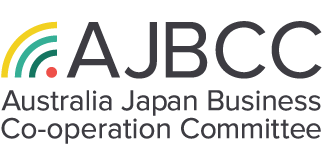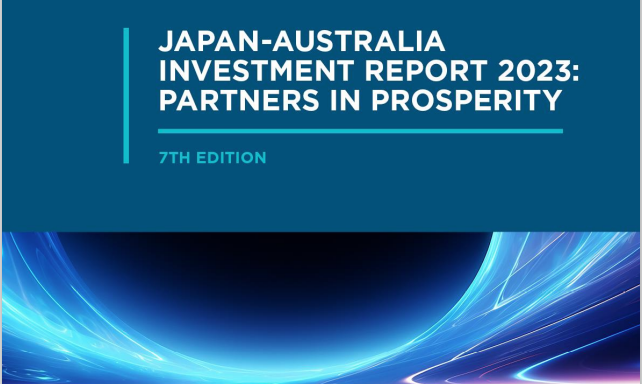16 Apr Japan-Australia Investment Report 2023: Partners in prosperity
The AJBCC is pleased to share the seventh annual report on Japan-Australia Investment and the prevailing trends driving the investment relationship, co-authored by Herbert Smith Freehills and The Australian National University.
An in-depth analysis of Japan-Australia M&A transactions and partnerships throughout 2023, this report encapsulates findings and insights gleaned from a thorough examination of deal trends that defined 2023, and also identifies key drivers for the future including predictions for the trajectory of the Japan-Australia relationship for 2024 and beyond.
There has been a further deepening in the Japan-Australia relationship over the past 12 months, as ‘partners in prosperity’, during a period of growing international turbulence. Changes in the global geopolitical environment have brought the two countries closer together as indispensable economic partners, particularly in the mutual pursuit of the energy transition to net zero by 2050.
Inbound Japanese M&A saw a record 53 transactions during 2023 with total Japanese direct investment into Australia increasing to a record $133.8 billion. Investments occurred across a large number of sectors including real estate, energy, technology, financial services, consumer goods, infrastructure, housing and services. 2023 reinforced that Japanese capital and know-how will remain a crucial driver of Australian employment, economic growth and the ability to export across most sectors.
In this context, partnerships have also continued to flourish as the “third paradigm” for Japanese investment into Australia. A total of 38 partnerships were announced in 2023, building on a total of over 150 partnerships announced since 2019. A number of the “new energy” partnerships are now progressing to proof of concept and implementation phase as the underlying projects aim for commercialisation by 2030.
It is an exciting time for the resilient Japan-Australia investment relationship. The depth and breadth of this complementary partnership is more evident than ever before with expanded government support, bilateral cooperation and business collaboration.




